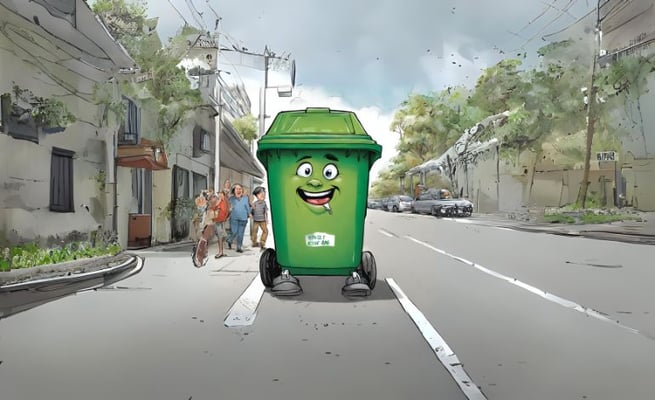Starting Feb, you can't put these items in recycle bin

Auckland Council is encouraging residents to familiarise themselves with updated recycling guidelines ahead of the implementation of new national standards on February 1.
Starting on that date, all New Zealanders must adhere to uniform rules regarding what items they can put in their curbside recycling bins, replacing the previous region-specific regulations.
Richard Hills, Auckland councillor and Chair of the Planning, Environment, and Parks Committee, is urging Aucklanders to acquaint themselves with the revised guidelines. He emphasises proper recycling practices enhance the quality of recycled materials and ensure more effective use of ratepayers' funds.
Currently, contamination of recycled materials costs Auckland ratepayers an additional $3 million annually, with nearly a quarter of collected materials in the region being contaminated.
Auckland Council has updated its website and Binny smartphone app to align with the new national standards. Starting February 1, 2024, acceptable items in curbside recycling bins include glass bottles and jars, paper and cardboard, plastic bottles, trays, and containers (limited to grades 1, 2, and 5), as well as tin, steel, and aluminum cans.
The plastic container grade can be determined by a small triangle symbol with a number in the middle. Newly excluded items include those smaller than 50mm (like caps, small cosmetic and spice containers), aerosol cans (steel and aluminium), liquid paperboard (Tetrapak and juice boxes), plastics 3, 4, 6, and 7, aluminium foil and trays, all lids, and items exceeding 4 litres.

Auckland Council advises residents uncertain about their recycling practices to take a test on their website. While reducing single-use items is the optimal waste reduction approach, proper recycling is the second-best option. Hills emphasises that this change is a crucial step towards Auckland's goal of achieving zero waste by 2040.
Auckland Council is encouraging residents to familiarise themselves with updated recycling guidelines ahead of the implementation of new national standards on February 1.
Starting on that date, all New Zealanders must adhere to uniform rules regarding what items they can put in their curbside...
Auckland Council is encouraging residents to familiarise themselves with updated recycling guidelines ahead of the implementation of new national standards on February 1.
Starting on that date, all New Zealanders must adhere to uniform rules regarding what items they can put in their curbside recycling bins, replacing the previous region-specific regulations.
Richard Hills, Auckland councillor and Chair of the Planning, Environment, and Parks Committee, is urging Aucklanders to acquaint themselves with the revised guidelines. He emphasises proper recycling practices enhance the quality of recycled materials and ensure more effective use of ratepayers' funds.
Currently, contamination of recycled materials costs Auckland ratepayers an additional $3 million annually, with nearly a quarter of collected materials in the region being contaminated.
Auckland Council has updated its website and Binny smartphone app to align with the new national standards. Starting February 1, 2024, acceptable items in curbside recycling bins include glass bottles and jars, paper and cardboard, plastic bottles, trays, and containers (limited to grades 1, 2, and 5), as well as tin, steel, and aluminum cans.
The plastic container grade can be determined by a small triangle symbol with a number in the middle. Newly excluded items include those smaller than 50mm (like caps, small cosmetic and spice containers), aerosol cans (steel and aluminium), liquid paperboard (Tetrapak and juice boxes), plastics 3, 4, 6, and 7, aluminium foil and trays, all lids, and items exceeding 4 litres.

Auckland Council advises residents uncertain about their recycling practices to take a test on their website. While reducing single-use items is the optimal waste reduction approach, proper recycling is the second-best option. Hills emphasises that this change is a crucial step towards Auckland's goal of achieving zero waste by 2040.









Leave a Comment